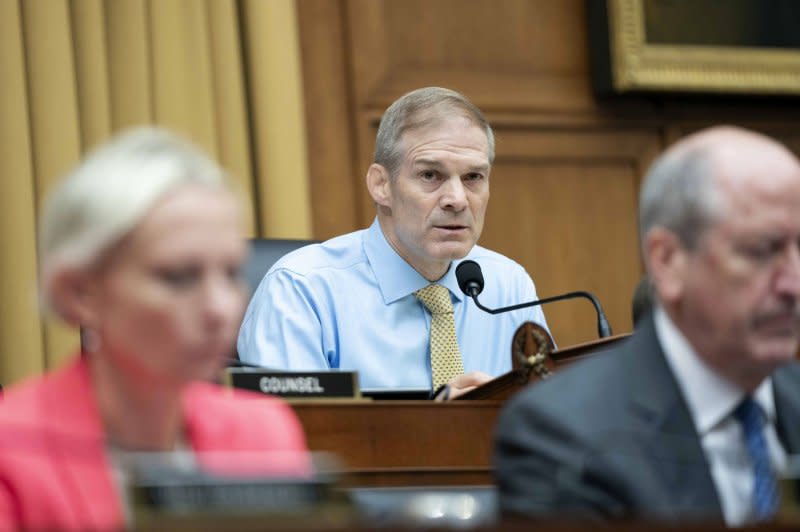House holds shameful 'debates' over Christopher Wray, defense funding

Earlier I asked if America has hit a political bottom -- and answered with an emphatic NO. Why?
The House of Representatives presented two examples of unimpeachable proof of how low American politics have descended and keep descending. The inquisition of FBI Director Christopher Wray and the floor "debate" on the National Defense Authorization Act were national disgraces. But, first, since Congress has usually been the source of intense criticism and often ridicule, why is today different?
Nearly a century ago, the great humorist Will Rogers concluded, "Every time Congress passed a law, it was a joke. And whenever Congress made a joke, it turned out to become a law."
In the mid 1970s after the Vietnam War, when I was on the faculty of the National War College, the country's senior military teaching institution, each year, every class was asked to choose the greatest threat to the nation. For three years, the Soviet Union never came first. The U.S. Congress did. It took considerable effort to convince the student body that was not the case.
Today, I have no idea if the War College poses that question. But I am convinced that the students were proven correct. Congress, however, is only part of the greatest danger to the nation. Failed and failing government, of which Congress is critical, tops the list. These two examples are further evidence.

Wray is a conservative Republican, having clerked for a conservative judge and served in a senior appointment in President George W. Bush's Justice Department. A member of the Federalist Society, Wray was appointed by President Donald Trump. That House Republicans could raise such "absurd," "ludicrous" and "insane" conspiracy theories and accusations as Wray called them, profoundly challenged the sanity, if not ignorance, of those members and the party.
How did this happen?
Just as dangerous, the NDAA became the poster child for culture wars. Usually, that bill is bipartisan. It left the House Armed Services Committee by a 58-1 vote. Then it arrived on the House Floor. Armageddon broke out.
A tsunami of distortions, false truths and lack of facts passed for debate. The enemy was not China or Russia. "Woke" politics and the cultural biases inflicted on the military by the Biden administration were the central threats to America.
Not convinced, Rep. Eli Crane, R-Ariz., claimed his anti-diversity amendment had "nothing to do with colored peopl." Either Crane is, as Wray called his attackers, insane, or he is monumentally insensitive. Regardless of which he is, what are others like him on the extremes of both parties doing in Congress?
The answer is that they are elected. And that is what the public gets for its vote.
When the NDAA reaches the Senate, cooler heads will prevail. Sen. Jack Reed, D-R.I., and Roger Wicker, R-Miss., both veterans, are entirely sensible. But the Senate-House Conference to resolve the final bill could lead to deadlock. That means the NDAA to approve the budget is unlikely to be passed, leading to another Defense Concurrent Resolution.
To those unfamiliar with the effects of the CR, defense spending is frozen at the prior year's levels. In practice, that will force a cut of about 10%-15% in the Department of Defense's purchasing power. Given inflation of 3%-5% and uncontrolled real annual growth of 5%-7%, the department will be "underfunded" by at least 18% and even more.
Thank you Congress and both parties.
What can be done? The practical answer is very little. Unlike 1861 when the nation was divided over the one critical issue that would lead to secession and a civil war -- states' rights -- today there are virtually no issues that are not politically polarized, from "guns, gays, God and gestations periods to governing."
President Joe Biden believes the titanic struggle today is between "democracy and autocracy." He may be correct. But the larger issue may be the ability of governments to govern.
China is suffering from possible deflation, massive unemployment of about 20% for 20- to 25-year-olds and a national mood that is increasingly disconnected from its government, among other structural, demographic and economic problems. Russia is waging a war it cannot win in Ukraine and appears to be in chaos, firing generals who have proven to be reasonably competent in battle.
A saving grace for the United States may be its economy, which seems to be resilient. But should it prove vulnerable and a recession hits, politics will become even more acrimonious. Buckle Up.
Harlan Ullman is senior adviser at Washington's Atlantic Council, the prime author of "shock and awe" and author of "The Fifth Horseman and the New MAD: How Massive Attacks of Disruption Became the Looming Existential Danger to a Divided Nation and the World at Large." Follow him @harlankullman. The views and opinions expressed in this commentary are solely those of the author.
